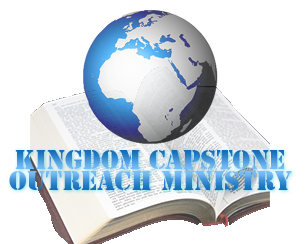You are here
SCRIPTURAL CELEBRATIONS
“You shall rejoice before the LORD your God, you and your son and your daughter, your male servant and your female servant, the Levite who is within your gates, the stranger and the fatherless and the widow who are among you…” – Deuteronomy 16:11
God has not called us to worldly, but to SCRIPTURAL CELEBRATIONS. Feasts were an integral part of biblical cultures. If we must please God on the matter of celebrations, it is paramount to examine the NATURE of Scriptural celebrations. Even within their nuclear family, Job's children celebrated birthdays: “And his sons would go and feast in their houses, each on his appointed day, and would send and invite their three sisters to eat and drink with them” (Job 1:4). God took His celebrations seriously and their cessation was His punishment, representing the breakdown of normal life and routines: ”I will also cause all her mirth to cease, her feast days, her New Moons, her Sabbaths – all her appointed feasts” (Hos.2:11).
Celebrations in the Old Testament were multi-generational affairs: “One generation shall praise Your works to another, and shall declare Your mighty acts” (Psa. 145:4). Moreover, celebrations in the Bible are universal, because God doesn’t discriminate. He expected cheerful participation and merry involvement by God’s people and foreigners of all generations, regardless of age, social or financial status: “You shall rejoice before the LORD your God, you and your son and your daughter, your male servant and your female servant, the Levite who is within your gates, the stranger and the fatherless and the widow who are among you, at the place where the LORD your God chooses to make His name abide” (Dt. 16:11).
Biblical Celebrations were rarely ‘silent’ affairs, but were often accompanied by music and dancing: “…and the trumpeters were by the king. All the people of the land were rejoicing and blowing trumpets, also the singers with musical instruments, and those who led in praise…” (2 Chr.23:13). On many occasions, special foods were prepared and eaten and wines drunk: “Then he said to them, “Go your way, eat the fat, drink the sweet, and send portions to those for whom nothing is prepared; for this day is holy to our Lord. Do not sorrow, for the joy of the LORD is your strength. So the Levites quieted all the people, saying, “Be still, for the day is holy; do not be grieved. And all the people went their way to eat and drink, to send portions and rejoice greatly, because they understood the words that were declared to them” (Neh. 8:10-12.)
At the heart of Biblical Celebrations were consecrations, dedications, sacrifices and offerings, acknowledging that everything belonged to God and came from Him: “Every man shall give as he is able, according to the blessing of the LORD your God which He has given you” (Dt.16:17). Sacrifices also provided for the temple’s sustenance: “O LORD our God, all this abundance that we have prepared to build You a house for Your holy name is from Your hand, and is all Your own” (1 Chr. 29:16). 2 Chronicles 31:4-5 says, “As soon as the commandment was circulated, the children of Israel brought in abundance the firstfruits of grain and wine, oil and honey, and of all the produce of the field; and they brought in abundantly the tithe of everything…”
Celebrations of the Early Church were new in intent and attitude, linked more to the symbols of Christ's accomplishment than the religious rituals of the past: “Therefore let us keep the feast, not with old leaven, nor with the leaven of malice and wickedness, but with the unleavened bread of sincerity and truth” (1Cor.5:8). The Lord's Supper, instituted by Jesus as a memorial for His followers, encompassed prayers, feasting, and community remembrance: “For as often as you eat this bread and drink this cup, you proclaim the Lord’s death till He comes” (11:20-34). It celebrated the fulfilment of the Jewish Passover (Mt.26:26). Jesus, the Lamb of God foreshadowed in the Passover, was slain for humanity’s redemption.
The final feast mentioned in Scripture is the Marriage Supper of the Lamb. This celebration commemorates God’s Ultimate Victory of demolishing His enemies and banishing evildoers from His presence (Rev.19:6-9).
Adetokunbo O. Ilesanmi (Meditations)
- Log in to post comments
Latest Tweets
No tweets to display now.
Our Vision
The vision of KCOM is that:
"the earth shall be filled with the knowledge of the Glory of the Lord as the waters cover the seas" (Habakkuk 2:14).
"But we all, with open face beholding as in a glass the Glory of the Lord, are changed into the same image from glory to glory even as by the Spirit of the Lord" (2 Corinthians 3:18).
Copyright © 2013–2026 Kingdom Capstone Outreach Ministry. | Designed by ZoeWox Technologies
